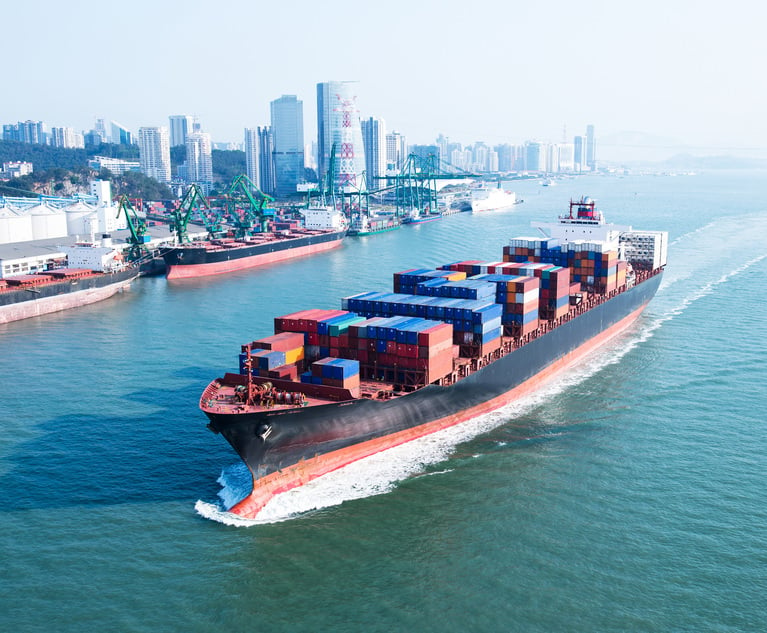Russia’s unprovoked invasion of Ukraine has triggered significant reactions in the world of maritime commerce. In a matter of days since the beginning of Russia’s main offensive, the price of bunker fuel used for vessel propulsion systems has skyrocketed as have tanker charter-hire rates and war-risk premiums for vessels transiting to or from regions impacted by the conflict, including the Baltic and Black Seas, which have been designated as “listed areas” by the insurance industry’s War Risk Council. The Russian Navy has closed access to the Sea of Azov (the body of water guarded by the Crimean Peninsula that affords maritime access by Ukraine to the Black Sea, along with the port of Odessa farther to the east), and blocked the movement of numerous merchant ships therein and in the Black Sea, stranding their crews who are running low on provisions, and bringing to a halt the export of Ukrainian grain, which will severely impact the world’s grain supply. The United States has imposed blocking sanctions on Russia’s Central Bank and two largest commercial banks Sberbank and VTB, as well as other sanctions on Russian companies, including restricting Russia’s largest maritime and freight shipping company SovComFlot’s access to long-term debt, which could adversely affect its ability to construct thirty ships on order, which in turn may impact the contracted shipyards, and may indirectly affect the company’s ability to charter its fleet of 140 vessels. The European Union has imposed similar sanctions on Russian banks and corporations. The United States and the EU have also agreed to restrict SWIFT bank transfers from a number of Russian banks. In addition to other sanctions that mirror those implemented by the United States and EU, Canada has banned Russian owned or registered vessels from entering Canadian waters. The United Kingdom has taken similar action. Remarkably, numerous major western companies are either cutting ties to Russia or halting business activity, which will further stifle the flow of investment capital to what soon may become the world’s largest third-world country.
One Russian ship subject to the U.S. Treasury Department’s Office of Foreign Asset Control (OFAC) sanctions list has been seized by France, various superyachts owned by Russian oligarchs have been seized, and a number of vessels approaching Ukrainian waters have been struck by missiles, including the tanker Millennial Spirit and cargo ships Yasa Jupiter, Namura Queen, Lord Nelson and Banglar Samriddhi. A sixth vessel, the Helt, was hit below the waterline and sank. International traders are proving more reluctant to charter Russian owned or operated vessels for fear of downstream sanctions problems, or purchase Russian oil and fuel supplies, even though sanctions have not yet been imposed on Russia’s exports of crude oil, gas or coal (save for the U.S. import ban on these commodities). Vessel traffic bound for Russia has declined by more than 50% since the war started.


 War of Russia against Ukraine. A residential building damaged by an enemy aircraft in the Ukrainian capital Kyiv, KYIV, UKRAINE – Feb. 25, 2022. Credit: Drop of Light/Shutterstock.com
War of Russia against Ukraine. A residential building damaged by an enemy aircraft in the Ukrainian capital Kyiv, KYIV, UKRAINE – Feb. 25, 2022. Credit: Drop of Light/Shutterstock.com




